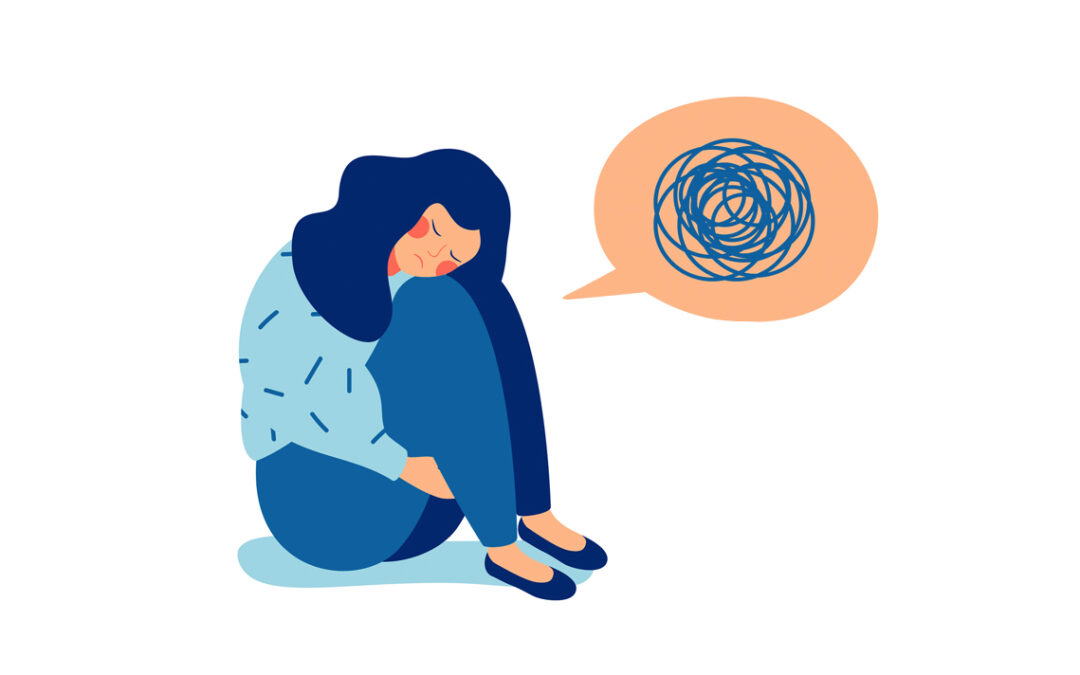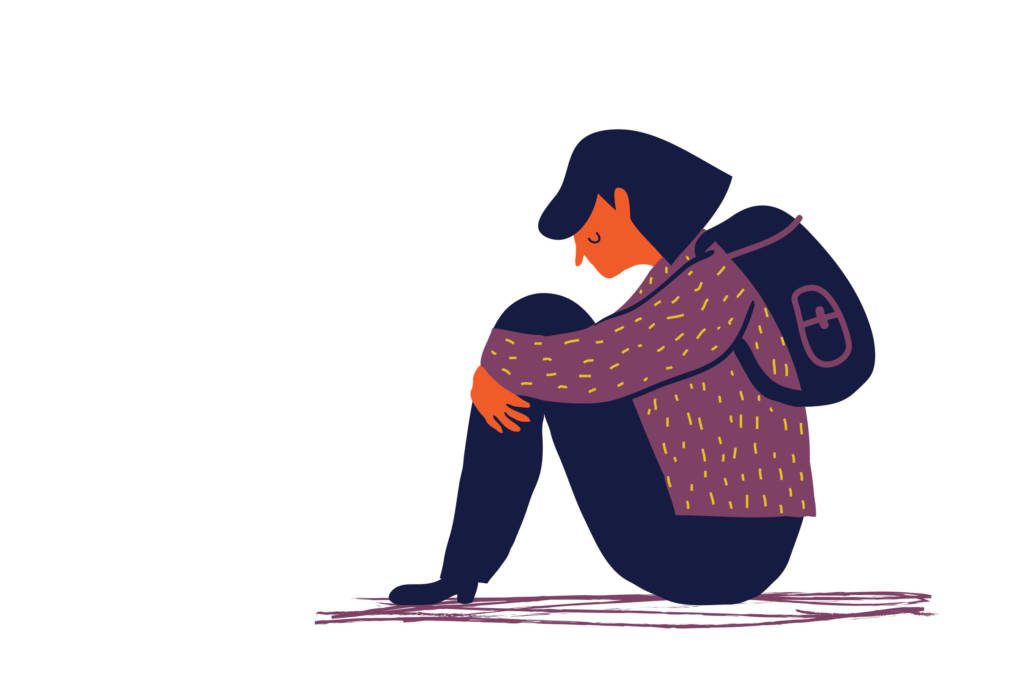We all suffer from anxiety at some point in our lives.
Anxiety is defined as a feeling of fear of the unknown. It is your body’s response to stress, and it happens to the best of us. However, suppose you’re someone who is constantly worrying about everything and expect the worst-case scenario in all the events. In that case, you might be suffering from a general anxiety disorder.
Let’s dive in a little deep and learn more about the symptoms, causes and explore the treatment options for this problem.
Generalised Anxiety Disorder (GAD)
You might have many terms like panic disorder, obsessive-compulsive disorder, and phobias being associated with anxiety. However, that’s not the case, and all of these mental conditions are separate from each other.
It is okay to feel stressed out or restless from time to time, but if you’re worrying about every single thing, then it isn’t something normal.
General anxiety disorder or GAD is a long-term condition in children, adolescents, young adults or adults. People with GAD would be overthinking about every little decision of their life. Whether it is a thing at work or an argument with their partner, these individuals cannot control their train of thoughts and end up thinking the worst conclusion to everything.
Moreover, sometimes these individuals can’t calm down. Instead, they are constantly feeling restless or incredibly irritated about one thing or another.
Causes Of Generalised Anxiety Disorder (GAD)
A range of causes can lead to GAD. However, it is usually a mixture of genetic, behavioural and environmental reasons. Let’s look at them one by one:
1. Behavioural
It’s no surprise that personalities play an essential role in the development of GAD. For example, a quiet kid who is incredibly shy keeps everything to himself rather than sharing – they are more likely to fall prey to GAD. Such children eventually grow up to be adults who over-analyse everything and constantly think about wrong situations.
2. Genetics
Generalised anxiety disorder is a mental condition that runs in the family. If you have a close relative suffering from this issue, there are high chances that you might suffer from it too.
3. Brain Function
If there’s a disruption in the normal functioning of serotonin and dopamine (neurotransmitters responsible for making you happy), you can develop GAD. You’d get upset very easily and can even get depressed.
4. Events
There are certain events in everyone’s life that can push them towards this disorder. Whether it is a child who saw his parents getting divorced, a teenager bullied throughout his high-school life or an adult who keeps experiencing professional failures – any of these traumatic events can cause general anxiety disorder.
How Would This Disorder Present Itself?
When it comes to the presentation of GAD, there are a few common symptoms that will allow you to single out the individuals who have it.
Following are the symptoms:
- Difficulty in ignoring a problematic situation and constantly thinking about it
- Overthinking about each and everything
- Creating worst-case scenarios in their heads
- Thinking of situations that are not going to happen any time soon (e.g. someone’s death)
- Being a perfectionist and getting disappointed if they don’t do it right
- Constant concentration difficulties
- Being tired all the time
- Getting irritated very easily
- Experiencing muscle tension very regularly
- Sleep disorders
- Feel like throwing up or getting nauseated very easily
Apart from these symptoms, a child or a teenager may worry about the following things:
- Homework (will I be able to complete it and submit it on time?)
- Continuously thinking about parents’ safety (will my mom or dad die?)
- Over-analysing their performances at school (did I do well or could I have done better?)
- Wanting approvals and reassurance (am I doing good, or should I improve?)
If you find your child experiencing these symptoms way too often as a teacher or parent, then it’s time to sit down with them and talk about whatever is bothering them.
What Are the Treatment Options?
Like any other illness, general anxiety disorder or any other form of anxiety requires treatment. It’s not okay to ignore these symptoms and think that they will subside on their own. If you think that you’re worrying too much about every single thing without any reason – it’s time to consult a doctor and get yourself checked.
After being diagnosed with general anxiety disorder, here are the following treatment techniques you can follow:
Medications
Generalised anxiety disorder can be treated with the use of antidepressants. They try to balance the release of neurotransmitters in your brain so that you feel tired, exhausted, or worried without any reason.
However, it is essential to not self-administer these medications. You should always follow the instructions of your doctor when it comes to consuming antidepressants.
Psychotherapy
Cognitive behavioural therapy is the most effective type of psychotherapy that focuses on assessing disturbing behavioural patterns. With the help of these assessments, the therapist helps to change these patterns so that the person suffering from generalised anxiety disorder can avoid those upsetting triggers. In addition, regular visits can improve an individual’s condition and help them take control of their anxiety.
Home Remedies
It’s nothing new that exercising regularly, eating healthy food, and having a positive attitude can ensure a good life. However, we all are faced with problems, issues and stressful situations which may cause us to fall off our track.
In such times we all should not resort to smoking, consuming alcohol or overthinking. Take a break, meditate, and this too shall pass. Falling short on sleep doesn’t help either; therefore, you should try to take extra care of yourself and stay physically active instead of sulking in your room alone.
Conclusion
GAD is one of the most common anxiety disorders which many of us could be suffering from. Yet, most of the time, we cannot realise that we could be victims of this disorder and disregard clear signs.
Apart from tracking these common symptoms, you should always keep in touch with your doctor to recover as soon as possible.




Recent Comments